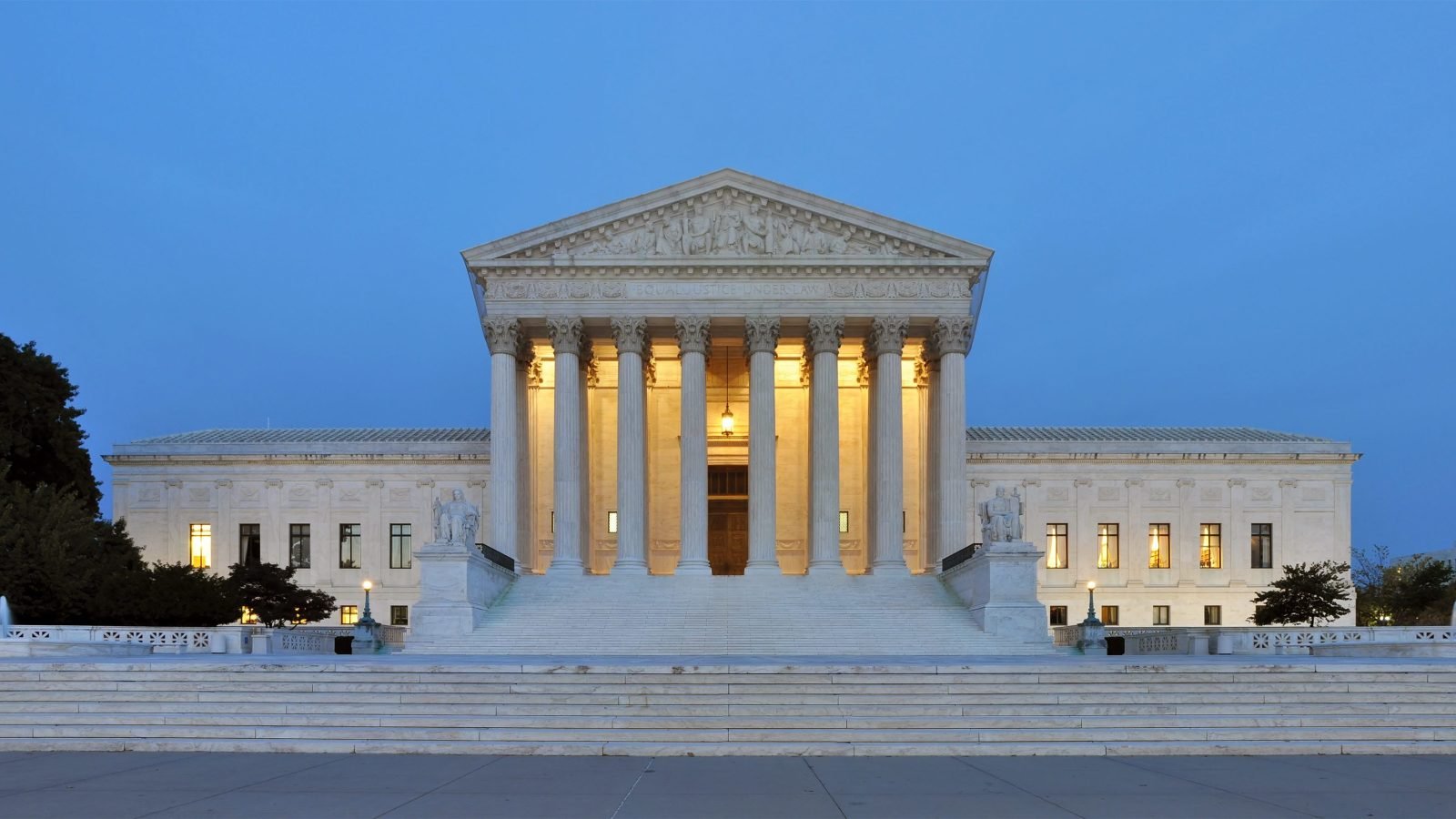The U.S. Supreme Court ruled Friday in favor of an evangelical Christian web designer who refused to work on same-sex weddings.
Supreme Court Rules For Web Designer Who Refuses to Work on Same-Sex Weddings
The court, which ruled on ideological lines, said forcing the Christian website designer to create wedding websites for same-sex couples would violate her First Amendment rights.
Lorie Smith, a creative professional, cannot be punished under Colorado’s antidiscrimination law for refusing to design websites for same-sex couples.
The Supreme Court sided with Lorie Smith, a web designer who said she had the right to refuse services for same-sex marriages. Smith spoke about the ruling on Friday at a news conference with the Alliance Defending Freedom, a conservative legal group. https://t.co/bDEJcUxZiL pic.twitter.com/iMYSeGCPNS
— The New York Times (@nytimes) June 30, 2023
“The First Amendment envisions the United States as a rich and complex place, where all persons are free to think and speak as they wish, not as the government demands,” Justice Neil Gorsuch wrote in the court's majority opinion.
Gorsuch said the First Amendment “protects an individual’s right to speak his mind” even when others think it’s “deeply misguided” or causes “anguish.”
Justice Sonia Sotomayor, who wrote the dissenting opinion, said it’s “a sad day in the American constitutional law and in the lives of LGBTQ people.”
In response to the Supreme Court's ruling, Arizona Democrat Attorney General Kris Mayes issued a defiant statement.
Mayes said she would not enforce the decision in Arizona.
Dem Arizona AG claims she will refuse to abide by Supreme Court ruling on religious freedomhttps://t.co/gR6k4eMJcy
— The Post Millennial (@TPostMillennial) July 5, 2023
Kris Mayes, the Democrat Arizona AG who “won” her race by 280 votes over Abe Hamadeh after massive voting machine outages on Election Day, claims she will refuse to abide by Supreme Court ruling on religious freedom. https://t.co/vGqDYBIdU9
— Charlie Kirk (@charliekirk11) July 5, 2023
"Today, a woefully misguided majority of the United States Supreme Court has decided that businesses open to the public may, in certain circumstances, discriminate against LGBTQ+ Americans," Mayes said Friday.
"While my office is still reviewing the decision to determine its effects, I agree with Justice Sotomayor – the idea that the Constitution gives businesses the right to discriminate is 'profoundly wrong,'" she added.
While my office is still reviewing the decision to determine its effects, I agree with Justice Sotomayor – the idea that the Constitution gives businesses the right to discriminate is "profoundly wrong."
— AZ Attorney General Kris Mayes (@AZAGMayes) June 30, 2023
"Despite today's ruling, Arizona law prohibits discrimination in places of public accommodation, including discrimination because of sexual orientation and gender identity," Mayes wrote.
"If any Arizonan believes that they have been the victim of discrimination on the basis of race, religion, sex, sexual orientation or gender identity in a place of public accommodation, they should file a complaint with my office," she continued.
If any Arizonan believes that they have been the victim of discrimination on the basis of race, religion, sex, sexual orientation or gender identity in a place of public accommodation, they should file a complaint with my office. https://t.co/zaj7PsdHzt
— AZ Attorney General Kris Mayes (@AZAGMayes) June 30, 2023
"I will continue to enforce Arizona's public accommodation law to its fullest extent," she added.
I will continue to enforce Arizona's public accommodation law to its fullest extent.
If you believe you have been discriminated against, file a complaint with @arizonaago here: https://t.co/zaj7PsdHzt
— AZ Attorney General Kris Mayes (@AZAGMayes) June 30, 2023
The Post Millennial reports:
The case which SCOTUS ruled in favor, 303 Creative v. Elenis, summarizes that Smith "wants to expand her graphic design business, 303 Creative LLC, to include services for couples seeking wedding websites."
However, because the state of Colorado has similar public accommodation laws to Arizona, Smith worried that it would "compel her - in violation of the First Amendment - to create websites celebrating marriages she does not endorse."
Smith argued that as a creative professional, she has a right to free speech in the work that she participates in. She sued the state in 2016 for the antidiscrimination law that has businesses provide services that would otherwise go against their religious beliefs.
The opinion, delivered by Justice Neil Gorsuch, siding with Smith, said Colorado "seeks to use its law to compel an individual to create speech she does not believe." Gorsuch added, "As surely as Ms. Smith seeks to engage in protected First Amendment speech, Colorado seeks to compel speech Ms. Smith does not wish to provide."



Join the conversation!
Please share your thoughts about this article below. We value your opinions, and would love to see you add to the discussion!